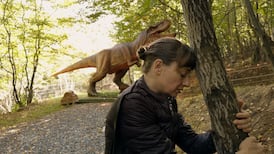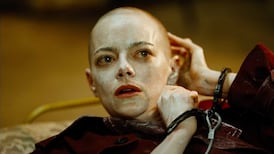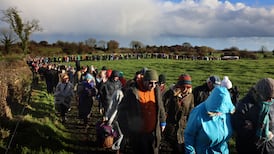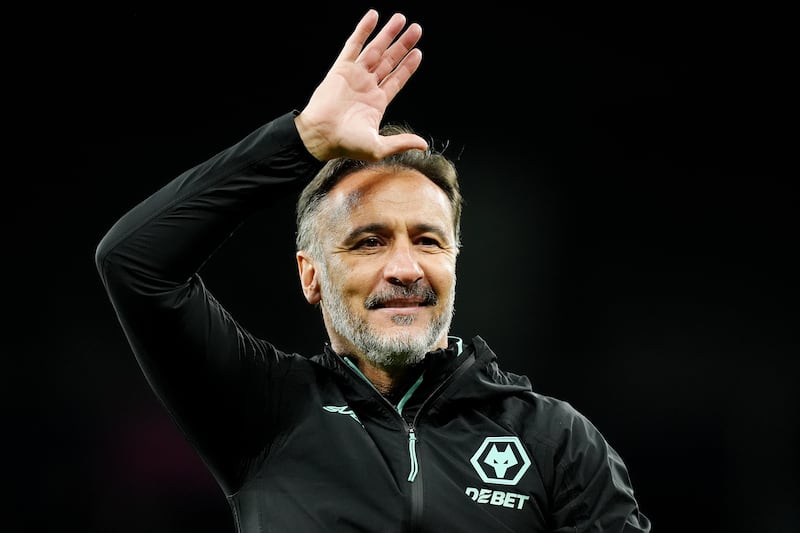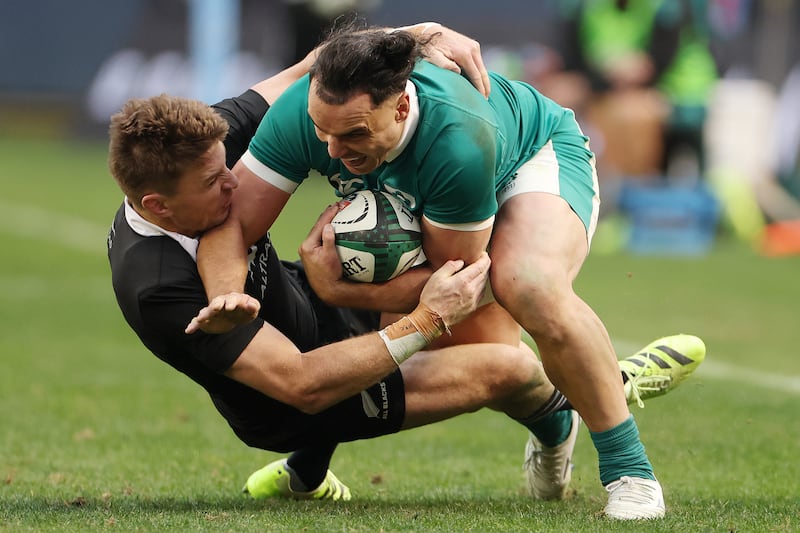There is a unique magic to Venice International Film Festival. Less hectic than Cannes, more democratic than Sundance, the event plays out on a long strip of land – the Lido – that acts as barrier between the ancient city and the Adriatic.
It offers natural challenges. The mosquitos are always in force. It can be blistering. This year The Irish Times found itself soaked to its underwear as a Lear-scale storm, complete with sheet lightning, bucketed water on the queue waiting to get into Luca Guadagnino’s (not very good) After the Hunt.
Still, it’s hardly war reporting. Where else would you have Kim Novak, 92-year-old Hollywood legend, ferried across a lagoon to receive a lifetime-achievement award? Novak, star of Alfred Hitchcock’s Vertigo, seemed ready to burst with gratification as she received her special Golden Lion from the film-maker Guillermo del Toro.
“Oh my gosh, the Venice film festival,” she breathed to a rapt audience. “I am receiving this. But it’s the same as if you were … You are me!”
READ MORE
All very moving. All very reasonable. But the festival is now expected to answer a bald question: are audiences about to have a bumper season of awards-friendly films? This year’s competition was packed with top auteurs. Not many editions have throbbed with such potential.
In truth, this proved a strong but not exceptional year for the high-profile flicks. Few knocked it out of the park. Noah Baumbach’s Jay Kelly, starring George Clooney as a variation on himself, and Guadagnino’s After the Hunt, featuring Julia Roberts as an embattled academic, were, respectively, pedestrian and dizzyingly incoherent.
Del Toro’s take on Frankenstein divided audiences between “mildly favourable” and “mildly unfavourable”. The Mexican writer-director retains the shape of Mary Shelley’s source novel and, helped by a strong performance from Jacob Elordi, reminds us that the creature is a tragic effusion of early romanticism.
Oscar Isaac, as the titular creator, struggles with a shaky English accent that is almost drowned out by the elaborately vulgar production design (and some bafflingly poor computer-generated wolves). This middle-ranking Frankie will attract big audiences on its Netflix release, but it seems unlikely to worry the ghost of Boris Karloff.

Irish audiences will be keen to see how Dublin makes out as costar of Jim Jarmusch’s Father Mother Sister Brother. The city appears in the central episode of an agreeable three-part anthology that, repeating and varying conversational riffs, finds siblings visiting parents’ homes in the rural United States, Paris and the Irish capital.
Vicky Krieps and Cate Blanchett are English sisters driving over for tea with mum Charlotte Rampling. The film can’t quite explain why, film-funding options aside, this tale is set in Dublin – I spotted bits of Stoneybatter early on – but the three leads, no character overly fond of any other, develop a convincingly tense triangle. One can’t help but laugh at the Luxembourgian Krieps mentioning that the family lived in Belgium as a way of explaining an accent with roots in neither D7 nor SW19.
The best of the three sections finds Adam Driver and Mayim Bialik fencing dexterously with eccentric dad Tom Waits. It’s just the sort of subtle yarn that made the director a low-fi legend.
Element Pictures, the busy Dublin-founded production company, brought its sixth collaboration with the Greek master Yorgos Lanthimos to the official competition. Bugonia, an adaptation of the 2003 Korean film Save the Green Planet!, proved a significant improvement on the same team’s fidgety Kinds of Kindness, even if it couldn’t quite reach the heights of their Poor Things or The Favourite.
Emma Stone, star of those films, is back as a ruthless executive held captive by Jesse Plemons’s demented conspiracy theorist. He is convinced she is an alien. She may end up accepting the apparent delusion to save her life. The performances are frantically strong. The camerawork of the Dubliner Robbie Ryan remains ingenious. The slight narrative overextension is relieved by a dynamite ending that honours the source’s commitment to ecoprincipled lunacy. Is it a little too out-there for the Oscars? We wondered that about Poor Things, but only Oppenheimer won more on the night.
Enthusiasts for Giuliano da Empoli’s bestselling The Wizard of the Kremlin will be keen to see Olivier Assayas’s take on this tale of a Machiavellian adviser to Vladimir Putin. Paul Dano plays a former avant-garde theatre director, loosely based on Vladislav Surkov, who rose to become the Russian’s leader’s own Rasputin.
The film received its share of bad reviews – and, at a colossal 156 minutes, it does feel like a three-part streaming series mashed into one unwieldy unit. There is much exposition. There is much droning voiceover straight from the book. But the slyly ironic turn from Dano and, as Putin, a ruthlessly buttoned-up one from Jude Law hold interest throughout. The script is particularly good on the hypocrisies running through US criticism of Russia.

Fans of Benny and Josh Safdie will have little doubt that The Smashing Machine is exactly the film Benny wanted to make. That is to say, it has the same blotchy distance and dislocated performances that you got in the brothers’ Uncut Gems and Benny’s own recent TV series The Curse.
The current project has Dwayne Johnson playing Mark Kerr, the former wrestler, who was a groundbreaking early pioneer of Mixed Martial Arts in the mid- to late 1990s. Emily Blunt is his troubled partner. It matters that Johnson is more than a quarter of a century older than Kerr was at this point, but, always a trouper, the former Rock delivers a genuinely touching performance as a man harrowed by opiate addiction and domestic disharmony. This is a tough, honest film that just about gets away with entertaining few cliches of the traditional sports flick.
It is not inconceivable that Park Chan-wook’s violent satire No Other Choice could take the Golden Lion on Saturday night. The Korean director of Oldboy and The Handmaiden is among the legends most conspicuously missing first prize at a major festival. (It is said Oldboy came within a whisper of the Palme d’Or 21 years ago.)
The new film adapts The Ax, Donald E Westlake’s riotous 1997 novel about a man who, laid off as an executive, decides to eliminate the applicants who stand between him and an attractive new position.
The script fumbles the lead into this scenario, and some viewers will find themselves a little puzzled as to what has driven Lee Byung-hun, playing a former top man in the paper industry, to apparently random homicide. Others may find the tone jarring: now wacky, now brutally violent. But this remains the sort of sleek entertainment that only Park can manage. It could just grab the top prize.
At time of writing, with several competitors still to land, the most likely winner – by just the tip of its nose – looks to be Mona Fastvold’s extraordinary musical The Testament of Ann Lee. Telling the story of the eponymous religious leader’s work in founding the Shaker movement, the murky epic, shot in 35mm, incorporates the sect’s hymns into a rich audiovisual incantation.

It may succeed where Brady Corbet’s The Brutalist, which Fastvold cowrote, just fell short last year. Or could Kathryn Bigelow’s nuclear thriller House of Dynamite – which played to acclaim as I was chugging towards the airport – land a rare Lion for a genre picture?
There was much to enjoy away from the main competition. Werner Herzog, the great German master, received his own honorary Golden Lion from Francis Ford Coppola at the opening ceremony and went on to present a stunning documentary titled Ghost Elephants. “It’s not enough to praise Werner Herzog,” Coppola said. “One must celebrate the fact that someone like he can actually exist.” True enough. The new film follows a South African naturalist as he seeks a lost species of giant elephant.
Who knows why Cover Up, by Laura Poitras and Mark Obenhaus, was playing out of competition. Poitras won the Golden Lion as recently as 2022, for All the Beauty and the Bloodshed, and her study of Seymour Hersh, the investigative journalist who revealed the My Lai massacre in the Vietnam War, is a wonder of clarity and compassion.
If Hersh’s reaction to the enormous ovation in the Sala Grande was any measure, the crafty scribe cares as much about Venice love as does Kim Novak.




